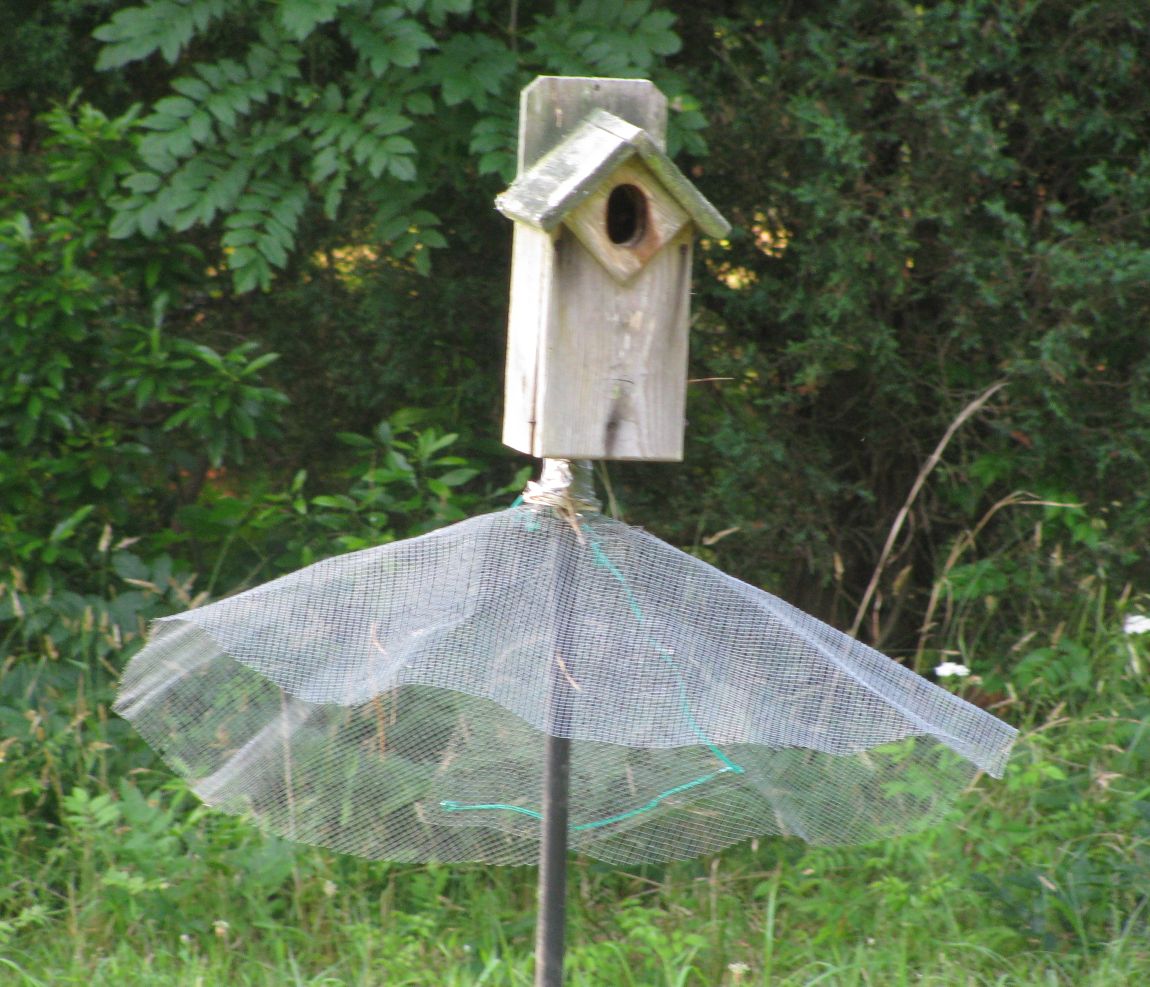MUSINGS
FROM THE MARSH
Ann
Woodlief
V. Bluebirds
One advantage of marsh living is that birds also love these trees and edges, and they don't have to sing over the sounds of traffic. They can be the best of neighbors, but there may be trouble in the air.
Each
spring my heart jumps whenever I spot the first migratory bird. The daffodils
and fruit trees may be blooming, but true spring is marked for me by the arrival
of my feathered songster friends, especially the hummingbirds and the towhees.
The
bluebird, though, is my favorite and at least one male overwinters. I come by
my love of bluebirds legitimately; my father loved them so much that he said that
if his spirit got to take another form, he would come back as a bluebird.
We installed bluebird houses--first two, then four--before we planted grass. Our first encounter was a male who seemed puzzled by the appearance of a house in his field. He perched on the window screen and even "buzzed" the bay window repeatedly, wings fluttering and outspread.
At the same time a pair of cardinals also took offense at our large reflective windows. For years we could count on the male attacking the glass, especially at sunrise (yes, even at 5 a.m.) with his feet and beak making loud (and waking) bumps while the female egged him on from the deck floor. Each blow sounded lethal, but he kept on, especially in spring and summer, until he finally passed on to cardinal afterlife, but without passing on his attack genes, thank goodness.
The bluebird was less obnoxious, preferring the living room and porch windows to the bedrooms. After a couple of years he accepted the house, appreciating one corner of the roof for spying good grubs in the grass.
In the spring the female would arrive and they would go right to nest building in one favored box, right near the sun porch. Most years they raised two broods-or tried to. Twice we caught a black snake eating the young. We relocated the snake, but the next year there would be another.
Finally my husband put floppy wire skirts around the poles--not beautiful but evidently quite effective. We resumed watching our favorite drama--coaxing the 'teenaged' babies to fly and leave home. The parents brought tidbits to the entrance, trying to lure the young birds to the hole. It sometimes took a week of very anxious parenting, but finally the young took off to nearby trees.

Last spring the pattern was broken. The male's sad little mating call went on for over a month before a female finally appeared. One morning I saw two males bumping breasts on the grass beneath the favored box, with bright blue wings spread fully. After about fifteen minutes of this little battle, one flew away and the female moved in.
But it was a pyrrhic victory. She lay four little blue eggs, then disappeared. Did she mate with the loser and build the nest in the neighbor's box? I don't know, but the male kept calling to no reply.
This spring the female showed up early to meet the resident male, and all seemed well. Again there were four eggs, then four babies which the parents tended constantly.
Then,
suddenly, the parents were not to be seen or heard. After several days I checked
the nest and the baby birds were dead, in a close huddle at the bottom of the
nest, with a bright orange and black beetle in the pine needles. Later my neighbor
told me it was called a "cowkiller" beetle, so probably the birds didn't
have a chance. It has been over a month, and the bluebirds are back, building
another nest and laying eggs again. My fingers are crossed, but they don't seem
as attentive to the nest as usual. And a week ago I found a young raccoon dying
on the ground below the nest, looking as if he had fallen from a great height.
Did the neighborhood eagle or the red-shouldered hawk catch him by the leg, where
there was a wound, and drop him? Was he trying to raid the nest? Of such dramas
is my life made. I know it's a tough world out there, and many birds and animals
do not survive. There are not as many birds here as there have been in recent
years. We can foil some predators, but what if the nurturing instinct is flawed-and
why? Is this a local tragedy, or is something more ominous going on? All I
can do is watch, listen, and wonder. You can't compare birds to humans or closely
predict global changes from them, but still….
Pleasant Living Magazine, May/June 2007